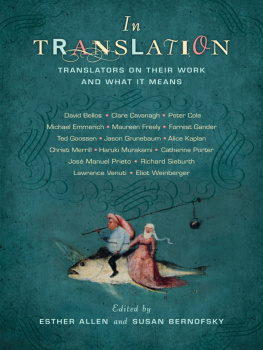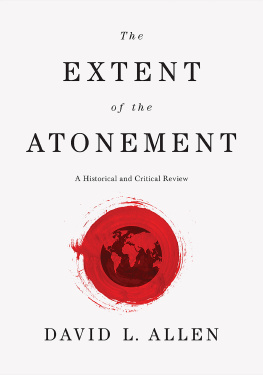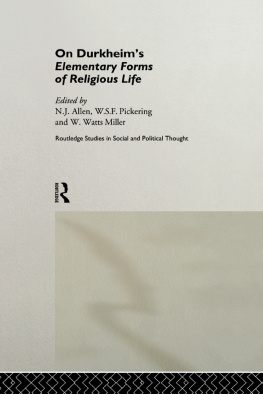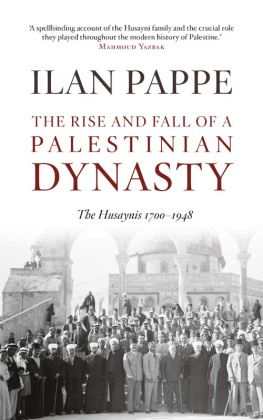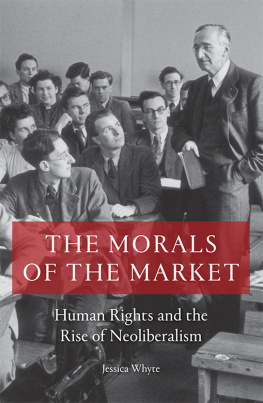Allen - The rise and fall of human rights: cynicism and politics in occupied Palestine
Here you can read online Allen - The rise and fall of human rights: cynicism and politics in occupied Palestine full text of the book (entire story) in english for free. Download pdf and epub, get meaning, cover and reviews about this ebook. City: Gaza Strip;Gazaremsan;Middle East;Palestine;Palestina;Stanford;Västbanken;West Bank, year: 2013, publisher: Stanford University Press, genre: Politics. Description of the work, (preface) as well as reviews are available. Best literature library LitArk.com created for fans of good reading and offers a wide selection of genres:
Romance novel
Science fiction
Adventure
Detective
Science
History
Home and family
Prose
Art
Politics
Computer
Non-fiction
Religion
Business
Children
Humor
Choose a favorite category and find really read worthwhile books. Enjoy immersion in the world of imagination, feel the emotions of the characters or learn something new for yourself, make an fascinating discovery.

- Book:The rise and fall of human rights: cynicism and politics in occupied Palestine
- Author:
- Publisher:Stanford University Press
- Genre:
- Year:2013
- City:Gaza Strip;Gazaremsan;Middle East;Palestine;Palestina;Stanford;Västbanken;West Bank
- Rating:5 / 5
- Favourites:Add to favourites
- Your mark:
- 100
- 1
- 2
- 3
- 4
- 5
The rise and fall of human rights: cynicism and politics in occupied Palestine: summary, description and annotation
We offer to read an annotation, description, summary or preface (depends on what the author of the book "The rise and fall of human rights: cynicism and politics in occupied Palestine" wrote himself). If you haven't found the necessary information about the book — write in the comments, we will try to find it.
Allen: author's other books
Who wrote The rise and fall of human rights: cynicism and politics in occupied Palestine? Find out the surname, the name of the author of the book and a list of all author's works by series.
The rise and fall of human rights: cynicism and politics in occupied Palestine — read online for free the complete book (whole text) full work
Below is the text of the book, divided by pages. System saving the place of the last page read, allows you to conveniently read the book "The rise and fall of human rights: cynicism and politics in occupied Palestine" online for free, without having to search again every time where you left off. Put a bookmark, and you can go to the page where you finished reading at any time.
Font size:
Interval:
Bookmark:
Stanford Studies in Human Rights
The Rise and Fall of Human Rights
Cynicism and Politics in Occupied Palestine
Lori Allen
Stanford University Press
Stanford, California
Stanford University Press
Stanford, California
2013 by the Board of Trustees of the Leland Stanford Junior University.
All rights reserved.
No part of this book may be reproduced or transmitted in any form or by any means, electronic or mechanical, including photocopying and recording, or in any information storage or retrieval system without the prior written permission of Stanford University Press.
Printed in the United States of America on acid-free, archival-quality paper
Library of Congress Cataloging-in-Publication Data is available from the Library of Congress
ISBN 978-0-8047-8470-2 (cloth: alk. paper)--ISBN 978-0-8047-8471-9 (pbk.: alk. paper) ISBN 978-0-8047-8551-8 (electronic)
Typeset by Bruce Lundquist in 10/14 Minion Pro
To my parents, Betty and Joe Allen
This struggle may be a moral one, or it may be a physical one, and it may be both moral and physical, but it must be a struggle. Power concedes nothing without a demand. It never did and it never will. Find out just what any people will quietly submit to and you have found out the exact measure of injustice and wrong which will be imposed upon them, and these will continue till they are resisted with either words or blows, or with both. The limits of tyrants are prescribed by the endurance of those whom they oppress.
Frederick Douglass, 1857
We are not born equal; we become equal as members of a group on the strength of our decision to guarantee ourselves mutually equal rights. Our political life rests on the assumption that we can produce equality through organization, because man can act in and change and build a common world, together with his equals and only with his equals.
Hannah Arendt, 1994
Contents
Mark Goodale
Foreword
Lori Allens The Rise and Fall of Human Rights opens with a double-barreled epigraph. She first gives us the famousand often misquotedpassage from the American abolitionist Frederick Douglass in which the world-historical catastrophe of American plantation slavery grounds a simple observation with monumental implications: that the physics of oppression can be countered only with an opposite and equal reaction, a struggle with words or blows, or with both. These lines from Douglass have been used down through the decades as a reminder that structures of injustice do not just fade away; they must be confronted, witnessed, attacked, and if necessary burnt to the ground. Despite Douglasss careful inclusion of words as a potential tool of resistance, there can be no doubt that words alone will not make a sufficient demand on the ravages of power, as history has shown us time and time again. That it is Frederick Douglass from whom we learn this lesson and not, say, Karl Marxwhose theories of history, power, and conflict also lead to robust and, potentially, violent theories of actionis revealing. Like the victims of the Nazi regime, the generations of enslaved Africansand the ideological and economic systems that justified such an abominationhave come to represent injustice itself, something absolute that does not admit of reasonable qualification. In other words, there are times, our troubled history teaches us, when the only thing left to do is fight and fight hard, when endurance of suffering is no longer noble but a form of complicity.
The second epigraph is from Hannah Arendt and, like the first, its import hangs over the book like a dark and ominous shadow. The legacy of Arendts writings has troubled the life of human rights since the early postwar period, when human rightsas international law, as a form of politics, as a new transnational ethicswas deeply incipient, except for the coteries of international lawyers and diplomats who labored away within the United Nations to establish the rudiments of what would become the international human rights system. In 1951, however, with the Universal Declaration of Human Rights still hot off the presses, Arendt published her masterwork on the origins of totalitarianism. In one of its thirteen chapters, she levels a devastating critique against the rights of man as the doctrine had evolved through the first half of the twentieth century. One could hardly find a moment in history in which a politics and ethics based on the principle of human dignity would be more starkly contradicted in practice by the horrors of imperialism, militarism, and genocide. So, with the killing fields of World War I and the Holocaust in full view, it is not surprising that Arendt would look with some philosophical suspicion on any assertion of human equality that was anchored in the deontological ether.
As a solution to this yawning gap, Arendt argued that the neo-Enlightenment conception of human rights was not merely nonsense on stilts, as Jeremy Bentham once put it, but something much worse: a dangerous discursive shell game that takes the place of the hard, and historically rare, work through which political institutions create the social conditions in which rights-bearing and citizenship can have any meaning at all. The idea and necessity of a prior right to have rights have, for some, kept the critical light shining on the broader political and social contexts in which human rights have become, especially after the end of the Cold War, such a compelling, inspirational, and even hegemonic geoethical presence.
Allens remarkable study of the ways in which human rights has transformed a much older conflict between Israel and Palestinians living in the West Bank is profoundly shaped by the two categories of insights with which she begins the book. Given that the Palestinians will not achieve some form of self-recognized emancipation without winning a struggle that they are still losing, and given that the concept of human rights as a factor in the conflict has risen among a stateless people whose ability to create a meaningful political communityand thus legitimately ground a right to have rightsis as restricted as the sealed and divisive borders that continue to trap Palestinians in a geopolitical cage, what then? Allens book is an answer to these questions and is rooted in years of close ethnographic attention to the lives of people who ultimately cannot deny their powerlessness and choked politics and yet must still establish and enact community on the terms they are given.
They do so, as she shows us with keen feeling tempered by a social scientists equanimity, by finding meaning and cultural creativity in the performance of what Allen calls a shared charade, the performance of the contested roles that have come to define the Israeli-Palestinian conflict in terms of human rights abuses, victims, perpetrators, activists, and institutions. A key to understanding the charade is the desire of many involvedthe international donor community, the Palestinian Authority, opposition groups like Hamasto look like a state. The examination of these cultural performances leads Allen onto an open, critical terrain on which human rights is only one among several key modes by which the conditions of domination are negotiated. Allens book is a sobering reminder that the promises of human rights can appear to recede at the speed of light when they are taken seriously by those whose lived reality is defined by exclusion, deferred dreams, and what she calls the politics of as if.
Mark Goodale
Series Editor
Stanford Studies in Human Rights
Acknowledgments
My Thanks go first to the people of Palestine, who helped me, taught me, and shared so much about the joys, strengths, and sadnesses of their lives. Everywhere I went people were kind, generous, and eager to do whatever they could to help me understand something about life under occupation. I hope what Ive written here does some justice to the injustices they live with every day. I offer special thanks to the staff of Defence for Children InternationalPalestine (DCIPalestine) and numerous friends I made at that organization. Also in Palestine, Nidal and Nisreen al-Azzeh and family, Terry Boulatta, Catherine Cook and family, Adam Hanieh, Steph Khoury, Hanan El-Masu, Helen Pope, Diab Zayd, and families in Jenin, Ramallah, Daheisha, and Aida camps, in Bethlehem, and in al-Bireh have been sources of information, inspiration, and support for the research in this book since 2000. In different ways they all taught me about Palestine, and about what it takes to be a good and courageous human. My parentsJoseph and Betty Allenand siblingsJeff, Jari, Tom, Michele, Terry, Jim, and Tim Allen, and Vicki and Dave Benyoand all their families in Kansas City and environs have been source, inspiration, and support for me since 1971; they have also taught me about good and courageous humanity.
Next pageFont size:
Interval:
Bookmark:
Similar books «The rise and fall of human rights: cynicism and politics in occupied Palestine»
Look at similar books to The rise and fall of human rights: cynicism and politics in occupied Palestine. We have selected literature similar in name and meaning in the hope of providing readers with more options to find new, interesting, not yet read works.
Discussion, reviews of the book The rise and fall of human rights: cynicism and politics in occupied Palestine and just readers' own opinions. Leave your comments, write what you think about the work, its meaning or the main characters. Specify what exactly you liked and what you didn't like, and why you think so.

